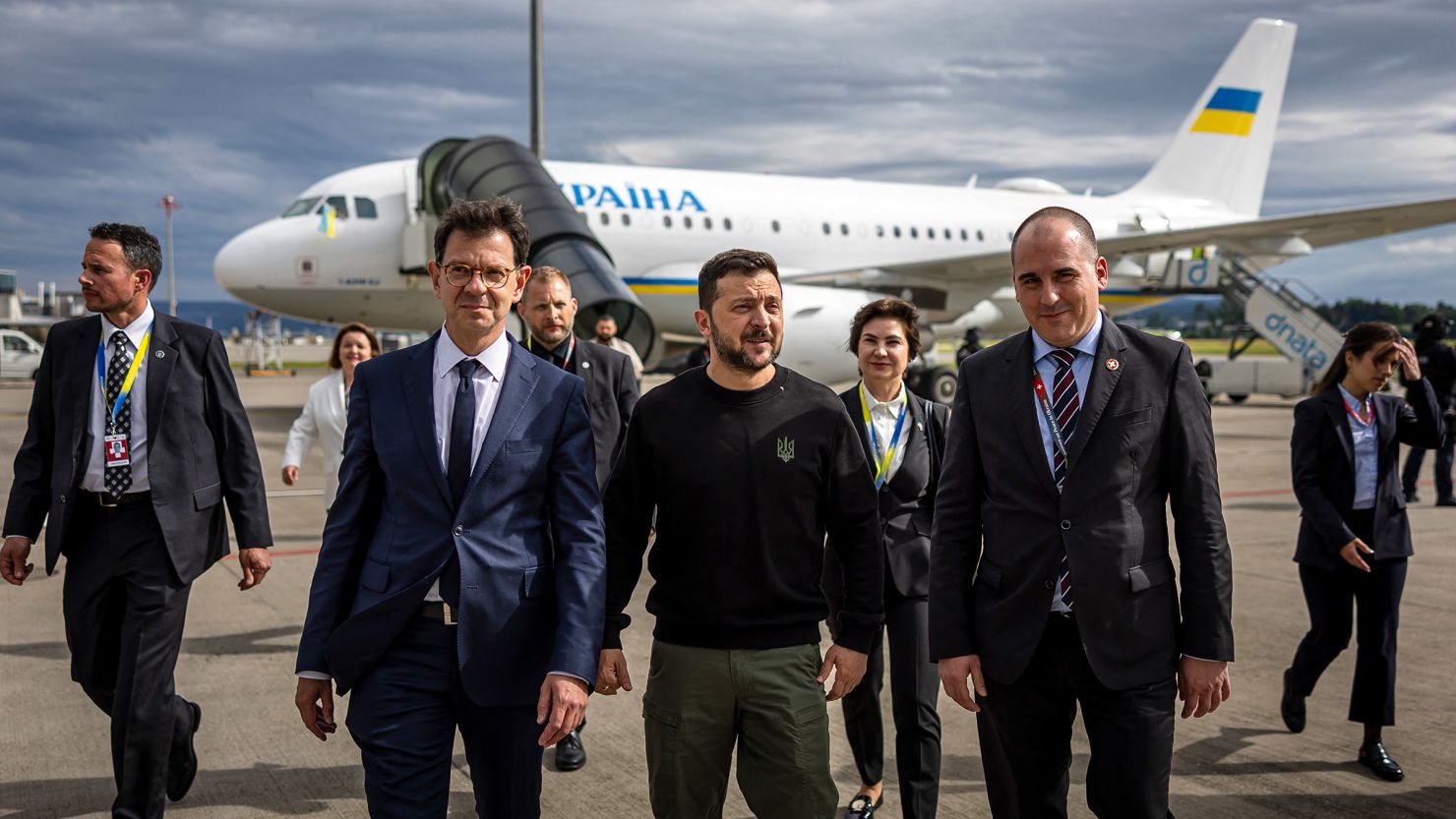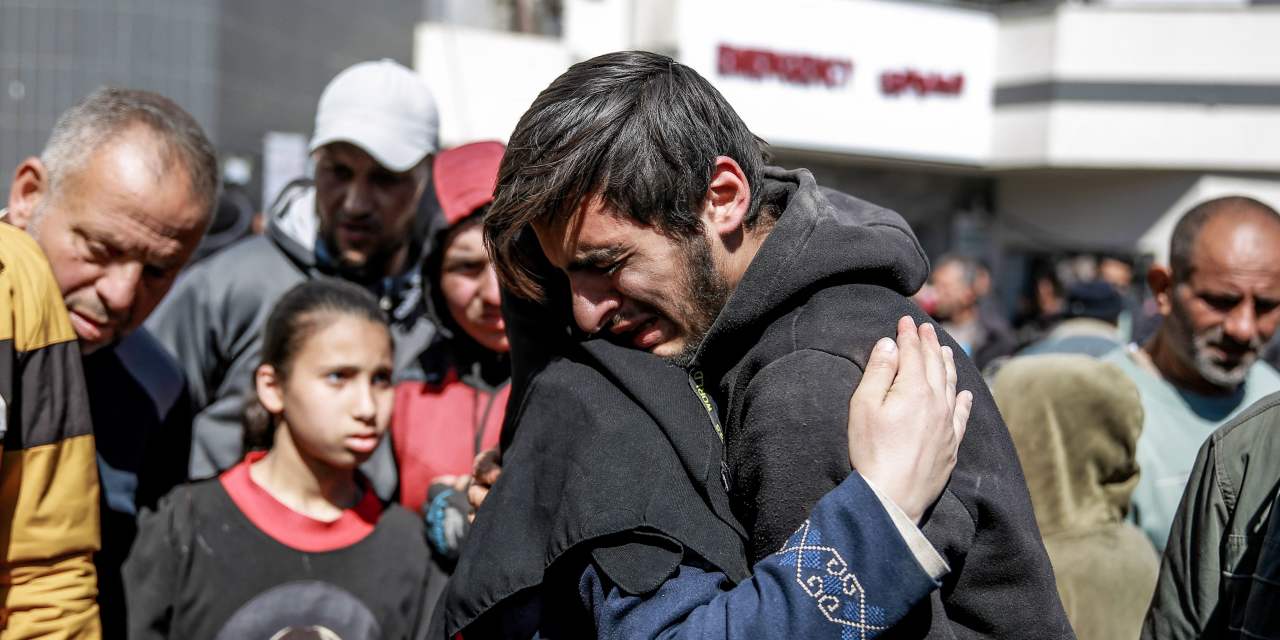Condemnation Of Russian Aggression: Swiss President's Call For Peace In Ukraine

Table of Contents
The Swiss President's Statement: A Departure from Neutrality?
The Swiss President's statement unequivocally condemned Russia's invasion of Ukraine, citing numerous violations of international law and humanitarian principles. The tone was firm and resolute, a stark contrast to Switzerland's traditionally cautious approach to international conflicts. This departure from strict neutrality signifies the profound impact of the war and the growing consensus on the need to hold Russia accountable for its actions.
- Key phrases used in the statement: "unprovoked aggression," "violation of international law," "humanitarian crisis," "grave breach of peace."
- Specific examples of Russian aggression cited: The statement likely referenced specific events such as the bombing of civilian infrastructure, war crimes allegations, and the displacement of millions of Ukrainian refugees.
- Analysis of the statement's impact on Swiss domestic politics: While Switzerland maintains a tradition of neutrality, public opinion has largely shifted towards supporting Ukraine, making the President's statement politically viable. However, internal debates are expected regarding the balance between neutrality and humanitarian responsibility.
- Comparison to previous Swiss government stances on international conflicts: Historically, Switzerland has remained neutral, offering humanitarian aid but refraining from explicit condemnations. This statement represents a significant shift in Swiss foreign policy, reflecting the exceptional nature of the current conflict.
International Response to the Swiss Condemnation
The Swiss President's condemnation of Russian aggression garnered a mixed international response. While many countries welcomed the statement as a significant demonstration of global unity against Russia's actions, others reacted with caution or criticism.
- Reactions from major world powers (US, EU, Russia): The US and EU likely expressed strong approval, reinforcing the growing international pressure on Russia. Russia, predictably, criticized the statement, likely accusing Switzerland of abandoning its neutral stance.
- Statements from international bodies like the UN: The UN likely welcomed the statement as a contribution to the international efforts to hold Russia accountable and restore peace in Ukraine.
- Analysis of the level of support or criticism received: The overall level of support likely outweighed the criticism, reinforcing Switzerland's position within the international community. This event demonstrates an evolving landscape of international diplomacy.
- Discussion of potential implications for Switzerland's international relations: The statement could potentially strengthen Switzerland's relationships with Western nations while potentially straining relations with Russia. Navigating this diplomatic landscape will require careful consideration from the Swiss government.
The Call for Peace in Ukraine: Pathways to Resolution
The Swiss President's statement implicitly called for a peaceful resolution to the conflict in Ukraine, though it didn't propose specific mechanisms. However, the condemnation itself lays the groundwork for fostering peace through diplomatic pressure.
- Specific proposals mentioned (e.g., negotiations, humanitarian aid): While not explicitly stated, the condemnation implicitly supports ongoing peace negotiations and the provision of humanitarian aid as crucial steps toward resolving the conflict.
- Assessment of the feasibility of the proposed solutions: The feasibility of a negotiated peace depends greatly on the willingness of all parties involved, including Russia, to engage in meaningful dialogue.
- Discussion of the roles of other international actors in achieving peace: The UN, EU, and other major global powers play crucial roles in mediating negotiations, applying diplomatic pressure, and providing humanitarian assistance. Switzerland's role can be influential through quiet diplomacy.
- Analysis of potential obstacles to peace: Significant obstacles remain, including Russia's unwillingness to engage in genuine negotiations and the deep-seated mistrust between the warring parties. The scale of the humanitarian crisis also presents a major challenge.
The Role of Switzerland in Humanitarian Efforts
Switzerland has a long-standing tradition of humanitarian action, and its commitment to aiding Ukraine and its refugees is substantial.
- Specific aid initiatives undertaken by Switzerland: These likely include providing financial assistance, medical supplies, shelter, and support for refugees. Switzerland's expertise in humanitarian logistics and neutral status could make it a crucial intermediary.
- The scale of Switzerland's contribution compared to other countries: While not a major military power, Switzerland's humanitarian contributions are significant, especially when considering its population.
- The impact of Swiss humanitarian aid on the situation in Ukraine: Swiss aid plays a vital role in alleviating suffering and supporting the resilience of Ukrainian civilians and refugees, contributing to a broader international humanitarian response.
Conclusion
The Swiss President's strong condemnation of Russian aggression in Ukraine marks a significant shift in Swiss foreign policy, demonstrating the growing global consensus on the need to end the conflict. The statement’s impact extends beyond Switzerland's borders, influencing international responses and highlighting the importance of collective action toward achieving peace in Ukraine. The call for peace, coupled with concrete humanitarian efforts, represents a crucial step in addressing the ongoing crisis.
Call to Action: Learn more about the ongoing efforts to achieve peace in Ukraine and how you can support humanitarian aid initiatives. Stay informed about the international condemnation of Russian aggression and participate in discussions about resolving the conflict. The international community needs your voice to foster peace and condemn the ongoing aggression in Ukraine.

Featured Posts
-
 Alfonso Cuaron And The Harry Potter Series Why Chris Columbus Left
May 03, 2025
Alfonso Cuaron And The Harry Potter Series Why Chris Columbus Left
May 03, 2025 -
 Mathieu Spinosi Et Son Violon Une Matinale Musicale
May 03, 2025
Mathieu Spinosi Et Son Violon Une Matinale Musicale
May 03, 2025 -
 Ngo Condemns Drone Attack On Gaza Aid Ship
May 03, 2025
Ngo Condemns Drone Attack On Gaza Aid Ship
May 03, 2025 -
 Is A Valorant Mobile Game Coming From The Pubg Mobile Team
May 03, 2025
Is A Valorant Mobile Game Coming From The Pubg Mobile Team
May 03, 2025 -
 Newsround On Bbc Two Hd Full Tv Schedule And Episode Guide
May 03, 2025
Newsround On Bbc Two Hd Full Tv Schedule And Episode Guide
May 03, 2025
